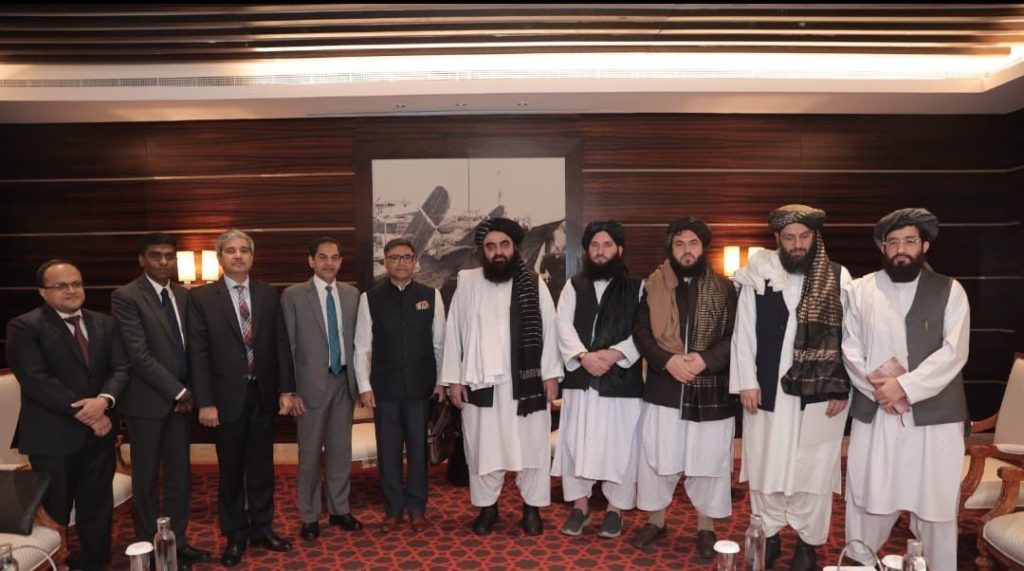The Afghan Taliban, under the pretense of governance and humanitarian efforts, are increasingly revealing their true intentions. After the exposure of U.S. aid being funneled to their regime, the Taliban have turned to their “old allies,” the Indian establishment, further exposing their duplicity and anti-Pakistan agenda.
Recent meetings between Indian officials and the Taliban leadership underline a calculated move to destabilize Pakistan, particularly its Pashtun regions.
The meeting in Dubai between Indian Foreign Secretary Vikram Misri and the Taliban’s acting Foreign Minister, Mullah Amir Khan Muttaqi, cloaked under the guise of “humanitarian aid,” has laid bare the nexus between the two entities. While India presents its assistance as support for Afghanistan, the reality is far more sinister.
The so-called aid is being leveraged to strengthen India’s influence in Afghanistan, positioning the Taliban as proxies to further its regional ambitions.
India’s strategy is clear: it seeks to exploit Afghanistan as a base to destabilize Pakistan through subversive activities. By supporting terrorist groups like the Khawarij and encouraging unrest in Pakistan’s Pashtun regions, India aims to sow discord and weaken the country.
The Taliban’s collusion in these activities underscores their betrayal of regional stability, as they willingly become tools in India’s larger geopolitical game.
The Afghan Taliban’s duplicity has left Pakistan facing significant challenges. The claims of protecting Islamic values and regional peace ring hollow when the Taliban align themselves with a state that has long been hostile to Pakistan.
Their actions not only undermine their credibility but also highlight the extent to which they are willing to compromise their supposed ideology for strategic gains.
For Pakistan, the situation demands a robust response on multiple fronts. Domestically, it is imperative to strengthen policies to counter the influence of such external actors. Effective measures to curb the infiltration of extremist ideologies and support for local communities in Pashtun areas are essential to maintain stability.
On the international stage, Pakistan must expose India’s machinations and highlight the Taliban’s complicity in fostering unrest. Diplomatic efforts should focus on rallying global awareness about India’s misuse of humanitarian narratives to further its regional ambitions.
The evolving Taliban-India nexus is a stark reminder of the threats posed by opportunistic alliances in a volatile region. Pakistan must remain vigilant, fortify its internal policies, and pursue strategic diplomacy to counter these challenges. By doing so, it can safeguard its sovereignty and work towards fostering genuine regional stability.


